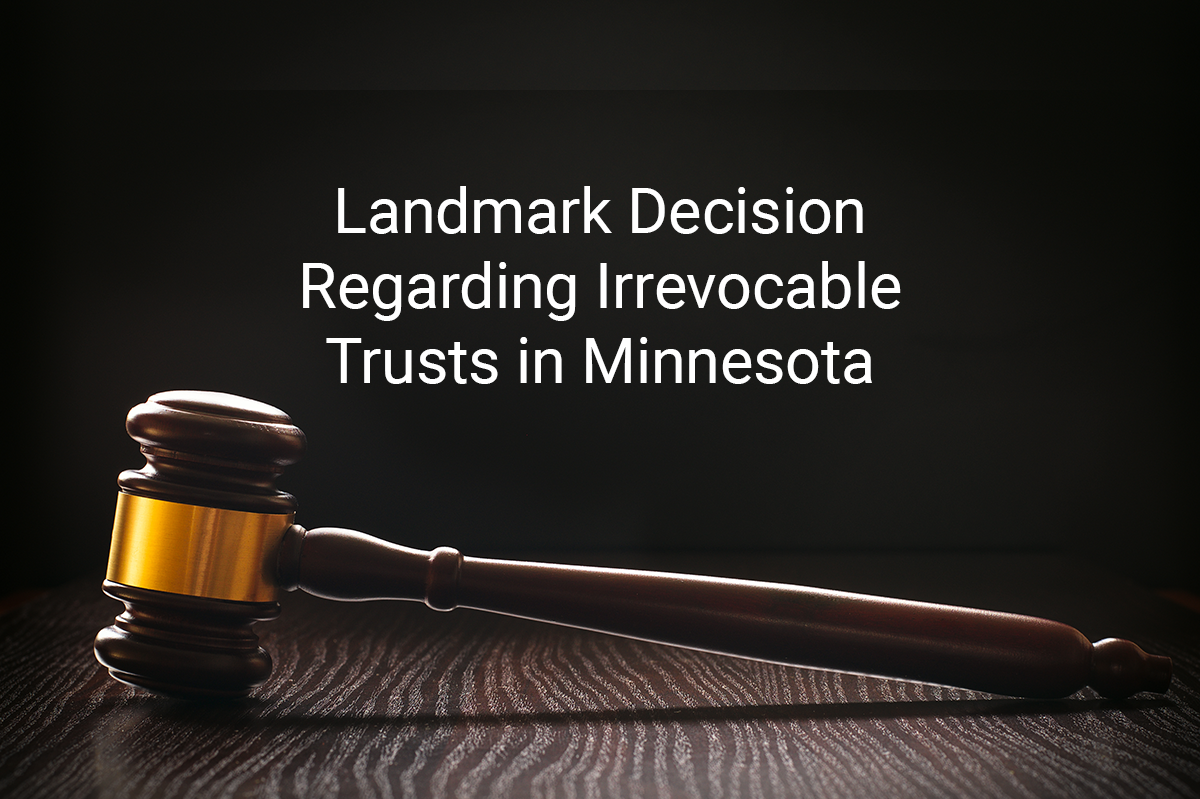
In a Minnesota appeals court decision, the court ruled that a Medicaid recipient’s irrevocable trust was not a countable asset and that Minnesota law on the matter is preempted by federal law. The decision turned long standing case law on its head, and gave the green light that an irrevocable trust can indeed be a non-countable asset for Medicaid eligibility purposes in Minnesota.
In this case, Geyen was the Grantor of two irrevocable trusts, which were identical except for their names. Her children were Trustees; her children and grandchildren were beneficiaries. Both trusts indicated their irrevocability and gave the Trustees “full power and authority to control” trust property. The trusts forbade the Trustees from loaning or gifting any assets to Geyen.



